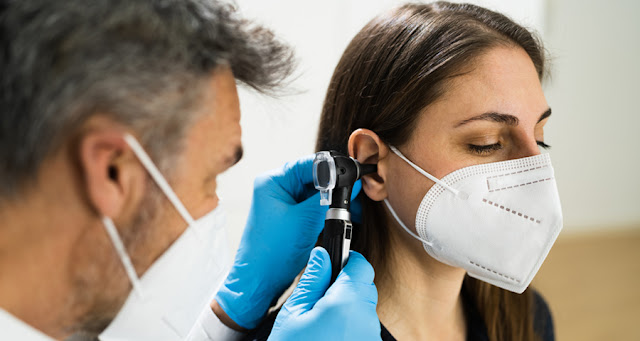Otolaryngologist and Audiologist: Know your Specialist
Hearing is one of our most important senses. Hearing is a miracle that allows you to receive information, communicate, listen to music, and feel the sounds around you.
Ears are a vital part of the human body, performing functions such as hearing and maintaining body balance. The most common problems are ear infections. Hearing loss caused by ageing is common in the elderly. According to research, one in every three adults over the age of 65 suffers from age-related hearing loss.We must be conscious of the essential tips for maintaining our ear health and schedule regular check-ups with health professionals. A patient who wants to take care of their ear health will usually be referred to an audiologist and an otolaryngologist.
An audiologist is a medical professional who specializes in the treatment of hearing and ear health issues. Audiologists must have a master's degree in audiology from a recognized board. Audiologists are not doctors, but rather health professionals who have expertise in audiology. They detect, assess, and treat hearing, stability, and other neural system disorders. Audiologists do not perform surgery or give medication.
An otolaryngologist is a physician who specializes in the treatment of ear, throat, and nose problems. Otolaryngology is a medical field concerned with the ears, nose, and throat. Because specialists are trained in both medicine and surgery, it is also known as otolaryngology-head and neck surgery. An otolaryngologist, also known as an ENT, is a doctor who specializes in the ears, nose, and throat.
Both audiologists and ENT doctors deal with outer ear and inner ear concerns. Both are capable of making diagnoses and administering a variety of interventions. An audiologist, on the other hand, will be more knowledgeable about how these body systems relate to your hearing instead of just your overall health.
Audiologists assess a patient's hearing ability, clean the earwax, and assist in the repair of hearing aids. If the patient's condition is more concerned, he or she will be referred to an otolaryngologist. Audiologists are the first line of interaction for hearing complications.
ENT PROCEDURES:
Early detection helps seniors avoid total hearing loss. Implants and operations may assist seniors who have lost their ability to hear due to ageing in regaining their hearing ability. The following are some of the procedures performed by implant otology.
- Cochlear implant
For those who have a hearing impairment or deficiency, cochlear implant surgery is a very useful treatment. A receiver-stimulator is implanted on the inside of the patient's ear. The cochlear implant is a simple and quick surgical procedure.
- Bone Bridge implant
The use of a bone bridge implant can aid in the treatment of a variety of ENT-related difficulties. A bone bridge implant is typically used to treat hearing loss in one ear. This is a simple outpatient operation in which an audio processor is attached both in and out of the ear.
Vikram ENT Hospital and Research Institute- Taking exceptional care to provide the best quality treatments possible by utilizing the most advanced medical technological tools for ENT procedures. Vikram ENT is an ENT hospital in Coimbatore with well-equipped cutting-edge medical technology to provide precise care to patients. Here are the technologies that support safe and quality procedures.
- Facial Nerve Monitor: This is a technological facility dedicated to ENT services for patients. Using a Facial Nerve Monitor has become critical to reducing the possible risks of nerve impairments that are common in all medical surgeries, including ENT surgery. Accidental nerve damage can be greatly reduced by using a Facial Nerve Monitor.
- Audiology lab: Entering an audiology lab is inevitable when it comes to clearly and effectively solve all types of hearing impairments. An experienced audiologist's efficient and professional intervention will make the patients' sufferings less challenging.
- Laser-assisted ENT surgery: In ENT Surgeries, equipment such as the KTP 532 laser, CO2 laser, and Carl Zeiss Sensera Microscope ensure and support precise procedures.











